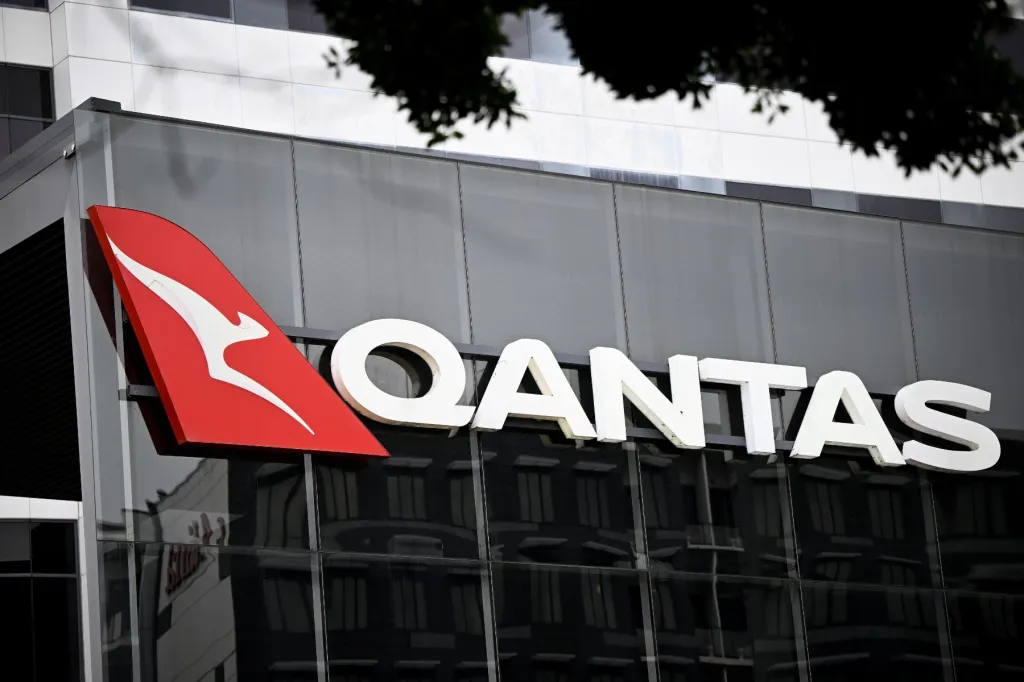Wall Street wipeout: Heavy losses spark recession fears
Wall Street ended with the largest one-day percentage losses in five years on Thursday.
Source: Fox News
Wall Street benchmarks have slumped as US President Donald Trump’s sweeping tariffs ignite fears of an all-out trade war and a global economic recession.
The United States Dow Jones index dropped more than 1680 points – nearly four per cent – on Thursday (local time).
Investors fled from risky assets, seeking the safety of government bonds, after Trump slapped a 10 per cent tariff on most US imports and much higher levies on dozens of other countries.
The tariffs, poised to disrupt the global trade order, highlight a stark shift from just a few months ago when the promise of business-friendly policies under the Trump administration propelled US stocks to record highs.
Investors sold positions to reflect the new economic reality, with concerns about how other countries would react to Trump’s Rose Garden proclamations.
China vowed retaliation, as did the European Union, which faces a 20 per cent duty. South Korea, Mexico, India and other trading partners said they would hold off for as they sought concessions before the targeted tariffs take effect on April 9.
You might like
The coming days are expected to be volatile as events unfold and the full effect of Trump’s economic actions start to feed through into the wider economy. The CBOE Volatility index, known as Wall Street’s fear gauge, touched a three-week high.
“There are still a lot more questions than answers out here,” said Steven DeSanctis, small and mid-cap strategist at Jefferies Financial Group.
According to preliminary data, the S&P 500 lost 275.05 points, or 4.85 per cent, to end at 5395.92 points, while the Nasdaq Composite dropped 1053.60 points, or 5.99 per cent, to 16,547.45. The Dow Jones Industrial Average fell 1682.61 points, or 3.98 per cent, to 40,542.71.
High-flying technology stocks suffered big declines after pushing Wall Street to record highs in recent years.
Apple sank, reeling from an aggregate 54 per cent tariff on China, the base for much of the iPhone maker’s manufacturing. Nvidia slumped, as did Amazon.com.
US stocks have lost ground since Trump took office in January, with the S&P 500 and the Nasdaq dropping 10 per cent from record highs last month, marking a correction, as investors priced in the economic damage from the tariffs.
Stay informed, daily
Traders are ramping up expectations for the Federal Reserve to cut interest rates four times this year, starting with a quarter-point cut in June.
“The Fed does have considerable firepower to help the market,” said George Bory, chief investment strategist for the fixed income team at Allspring Global Investments.
“The market is now pricing in more rate cuts, and perhaps sooner,” adding an easing in June seemed guaranteed, with the chance of a further cut in May.
That heightens the significance of Friday’s payrolls data in the US and Fed Chair Jerome Powell’s speech the same day. It could offer crucial insights into the US economy’s health and the future path of interest rates.
Retailers were hit hard, with Nike and Ralph Lauren falling on tariffs on major production hubs such as Vietnam, Indonesia and China.
Big banks such as Citigroup and Bank of America, which are sensitive to economic risks, fell, as did JPMorgan Chase & Co.
The US small-cap Russell 2000 index tumbled, underscoring concerns about the health of the domestic economy.
“Small-cap companies tend to be suppliers to the large-cap companies, so as things go bad for the large-cap names because of tariffs, they are going to put a lot of pressure on their small-cap suppliers,” said Jefferies’ DeSanctis.
Exxon Mobil and Chevron fell, as crude prices slumped 6.8 per cent on the tariffs and OPEC+ speeding up output hikes.
Consumer staples was one of the few bright spots. The sector is traditionally considered a defensive play, but it was also buoyed on Thursday by Lamb Weston, which gained after reporting earnings.
In his first public comments since announcing the global wave of tariffs on Wednesday (local time), Trump said the US economy would “boom”.
The President said the market slide due to his slew of tariffs was expected and needed to heal the American economy, which he has described a sick patient.
He also said he was open to tariff negotiations if other countries offered something “phenomenal.”








